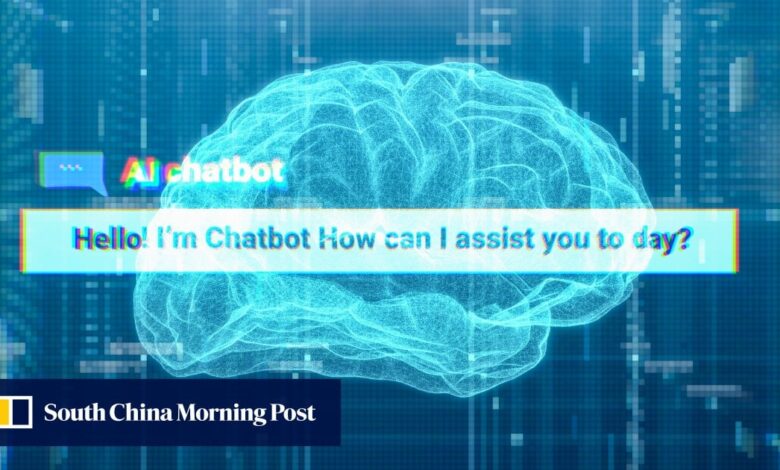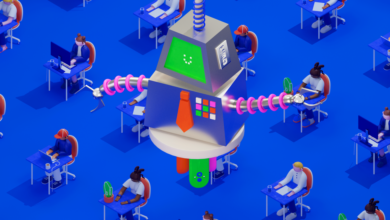The A.I. effect in education

Like it or not, artificial intelligence (AI) will be a major aspect of education at all levels in future, according to leading educators and tech experts. Larry Nelson, regional general manager of education for Microsoft Asia, believes there may be no area where the possibilities and implications of AI are more exciting than education.
When it comes to students, he’s excited by the promise of personalised learning – leveraging AI to adapt teaching methods and materials to the needs of each individual. As for teachers, there’s the automation of tasks like grading standardised assessments, freeing educators up to spend more time with their students. And these improvements are just the tip of the iceberg.
“Humans are hard-wired to dream, to create, to innovate,” Nelson said. “We need to avoid being consumed by the drudgery of work – spending too much time on tasks that zap our creativity and energy. To reconnect to the soul of our work, we don’t just need a better way of doing the same things. We need a whole new way to work – and generative AI assistants promise to help lift the burden.”
Nelson, who grew up in a family of educators, joined Microsoft in 2009 after working with various tech and education companies – as well as spending a decade running a family business with his mother. Now, he’s responsible for Microsoft’s education business unit for primary, secondary and tertiary institutions across Asia, including in India, South Korea, Japan, Australia, mainland China and Hong Kong.
With the emergence of large language model tools including Microsoft’s flagship AI product Copilot, as well as OpenAI’s ChatGPT and Google’s Gemini, AI has unsurprisingly become a major focus for Nelson and his team.
“Widening social disparities and technology skills gaps are becoming a key barrier for AI adoption in Asia
“At Microsoft Education, we’re focused on three critical areas: empowering our customers and partners to bring their visions to life, enhancing the value we can provide through Microsoft products, and deeply partnering with the education community to responsibly solve some of the most pressing challenges in education using the power of AI,” Nelson said.
To that end, the company has launched several projects, including the Microsoft Learn Educator Center, an AI hub offering educators free resources and training in using AI for educational purposes; the Microsoft Learn for Educators Program, which takes the best of Microsoft Learn online learning paths and helps educators to easily integrate AI skills, technical skills, verifiable credentials, and industry-recognised certifications into their classes; and the Microsoft Showcase School Program to further deepen and expand education and create a global community of pioneering schools.
Nelson firmly believes that AI has already drastically changed the employment and business landscape, and its impact is going to get exponentially bigger. It’s imperative, then, that students, and workers, regardless of their field of work, become at least literate when it comes to AI tools.

“As AI becomes more woven into society, its economic impact will be significant, and organisations are just starting to understand the extent of what’s possible. A recent Microsoft commissioned study through the International Data Corporation, which surveyed over 2,000 business leaders and decision makers from around the world, found that 71 per cent are already using AI in their organisations. “For every US$1 a company invests in AI, it is realising an average return of US$3.5,” Nelson said.
According to him, the largest concern when it comes to AI – for both students and workers – is equity. It’s important for all students, regardless of background, to have access to AI tools and the transformative opportunities they offer.
“Widening social disparities and technology skills gaps are becoming a key barrier for AI adoption in Asia. Which is why Microsoft has been focused on empowering workers in the region with the skills, knowledge and opportunities they need to thrive in an AI-powered future. We will also continue to engage with communities, businesses and governments across Asia, continually challenging our assumptions about what is possible with AI,” Nelson said.
Dr Helen Wright, an award-winning educator, executive leadership coach and author who sits on the board of Dalton Foundation Hong Kong, is bullish on AI’s possibilities in education, to say the least.
“What I find really interesting with AI is this glorious concept of how we can use this tool to care for our world, care for humanity,” said Wright. “How do we take that to the next level? And this is really what leaders and schools are talking about in so many ways.”
Wright said that the level of acceptance of AI in education looks like a “bell curve”. Many teachers embrace it and its possibilities fully, while others reject it entirely. And much of what Wright does revolves around helping convince sceptics, and people on the lower end of the bell curve, to focus on the myriad of positive possibilities and spend more energy on how to best use these tools.
“I think the really interesting question is, ‘How do we really use AI?’” she said. “How do we create the kind of personal virtual learning assistant for each child who could be working with that child throughout their life? And how do we make sure that we get the ethics right?”
Like Nelson, Wright believes the top priority in regards to AI is equity and access, to prevent students from different backgrounds from being left behind, and therefore, knowledge of these tools needs to be spread to schools everywhere.
Wright feels fortunate to be in an extremely forward-thinking school like Dalton School Hong Kong, which she said has a strong values base that teaches students how to use AI in a balanced and effective way, and she hopes to spread this ethos to schools everywhere.
“What I find really interesting with AI is this glorious concept of how we can use this tool to care for our world
“It’s about making sure that every child in the world has access to a high-quality education,” she said. “Some children don’t – it could be related to poverty, it could be because of ideology. But we believe every child has the right to an education and it’s up to the schools to have not just the tools, but also the values to teach students how to use AI in a balanced way.”
Project- and inquiry-based learning, she said, are important for any modern curriculum. Teaching new skills, like prompting, and encouraging a mature and thoughtful approach to AI, will be key in preventing students from looking at AI as a short cut to “real” learning. But as it stands now, purely knowledge-based curricula are out-of-date.
“We can’t learn everything,” Wright said. “And the trouble is when the curriculum becomes so crammed, we end up making a knowledge-based curriculum which is just about giving knowledge to children rather moving forward in different approaches.”
She believes this helps to create lifelong learners, not just for young students, but adults, too.
“We now know that the brain is much more plastic than we ever thought it was,” Wright said. “We thought it stopped growing at a certain point. It doesn’t. You keep it growing. And if you’re exposed to stuff and encouraged to reflect critically about it, then that’s when you’re most likely to be able to make the best use of it.”



